
In recent years, Ireland’s higher education sector has witnessed remarkable growth, particularly in its appeal to international students. Since 2016, HEA found that international enrolments in Ireland have risen by 42%, reflecting the country’s increasing desirability as a destination for global education.
Now, international students make up 13.7% of the student population – up from 12.4% in 2023. We examine the data behind this growth in this article. By understanding key drivers, institutions can continue to attract and support international students while enriching the educational experience for all.
Where students come from
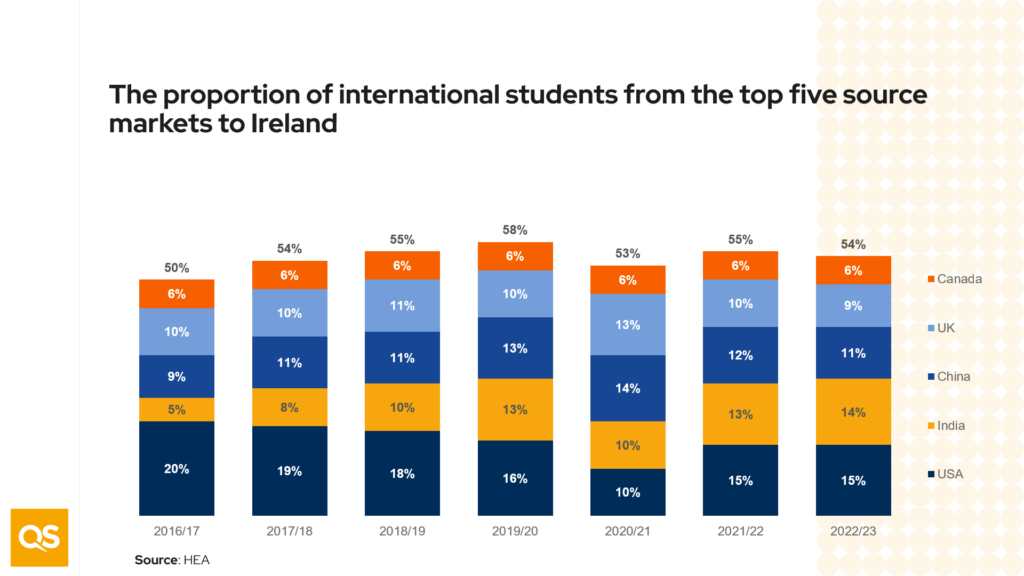
There are 5,290 students from 161 countries interested in studying in Ireland overall (QS International Student Survey 2024). The countries sending the most international students to Ireland have remained remarkably consistent since 2016 according to HEA. The US continues to hold the largest share of the international student market, despite a dip in 2020, likely due to COVID-19 restrictions.
However, with enrolment numbers from India increasing from 5% in 2016/17 to 14% in 2023, it appears India is poised to overtake the US as the dominant source market if current trends persist.
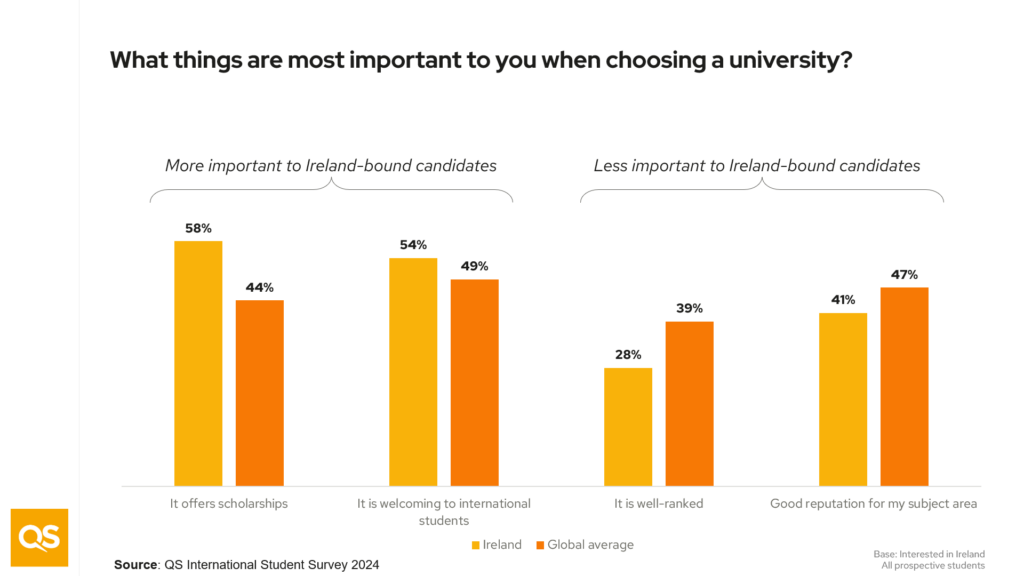
The QS International Student Survey 2024 also shared that international students interested in studying in Ireland prioritise the availability of scholarships and a welcoming environment over rankings and reputation, compared to the global average. While rankings and reputation are significant factors, Ireland-bound students may be more focused on the accessibility and availability of scholarships, which can alleviate financial pressures and make higher education more attainable. As we explore later, cost of living is a key concern for students looking to study in Ireland.
Additionally, the reputation of Ireland as a friendly and inclusive environment is a compelling draw. International students are likely seeking a supportive community that fosters both academic and personal growth, providing a more enriching experience beyond traditional educational metrics. By focusing on these aspects in an international student recruitment strategy, Irish institutions can attract a diverse range of international students eager to benefit from both the funding options and the welcoming atmosphere the country offers.
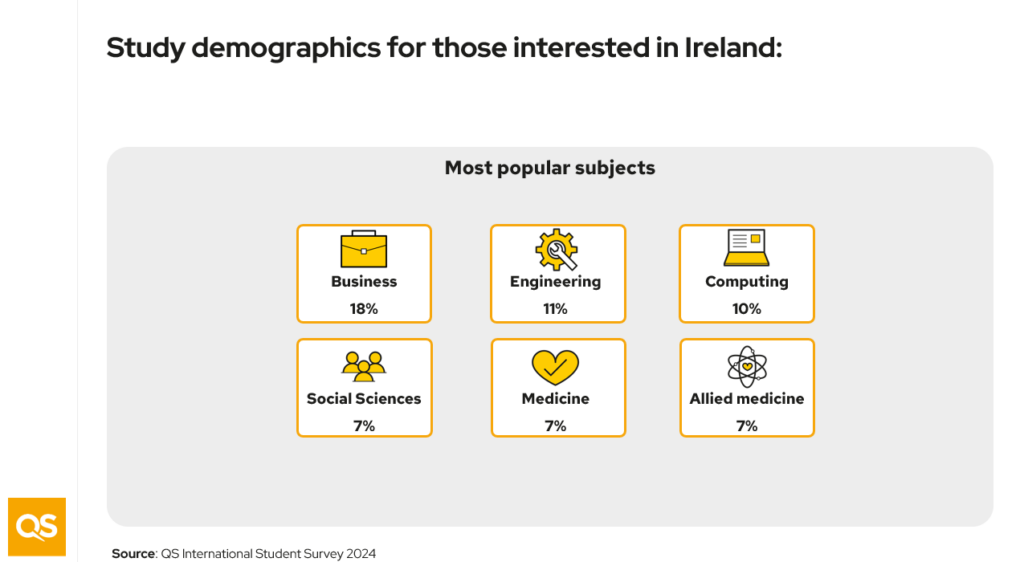
According to the QS International Student Survey 2024, 18% of students are looking to study business – the most popular answer. This is followed by engineering at 11% and computing and 10%. These figures suggest a strong inclination towards subjects that are in high demand in the global job market, reflecting students’ aspirations for careers in lucrative and high demand industries.
Irish universities can leverage this data to better tailor their marketing, curriculum development and student support services. This can be done by implementing targeted outreach and support strategies such as investing in state-of-the-art facilities, recruiting esteemed faculty in the top fields and fostering partnerships with industry leaders to provide students with practical experience and career opportunities. Such initiatives can also strengthen the universities’ standing and reputation in specific subjects.
Navigating concerns about overseas study
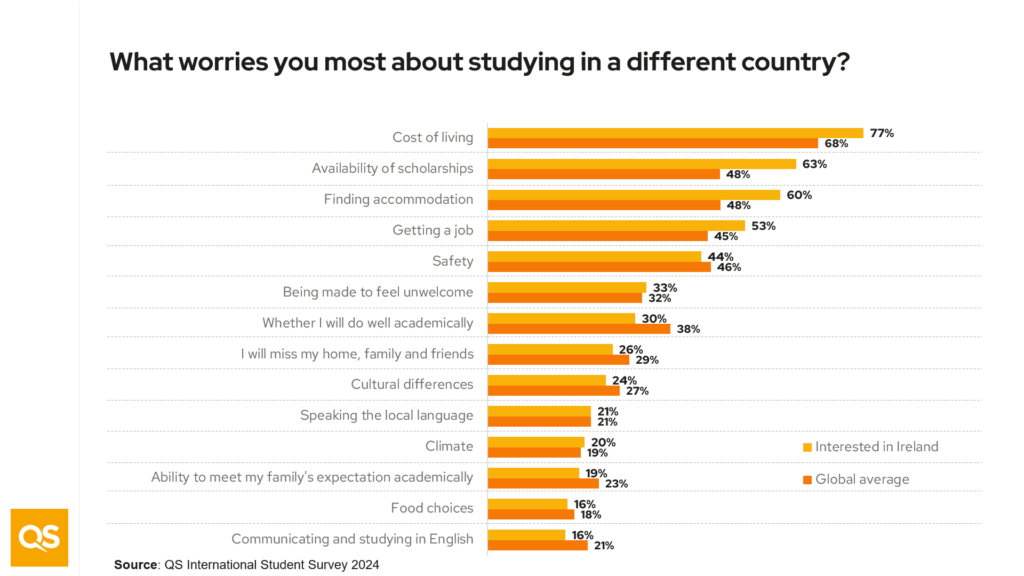
While cost of living is a top concern for all students (QS International Student Survey 2024), students looking to study in Ireland worry about accommodation and getting a job more than the global average. Institutions can adopt practices that offer reassurance by connecting prospective students with current students, allowing them to discuss the cost of living and safety at their study destination.
Employment outcomes
In 2023, HEA also found that 80% of international graduates in Ireland secured employment within nine months of completing their studies, exceeding pre-pandemic levels. This highlights the potential for positive career opportunities for prospective international students looking to study in Ireland.
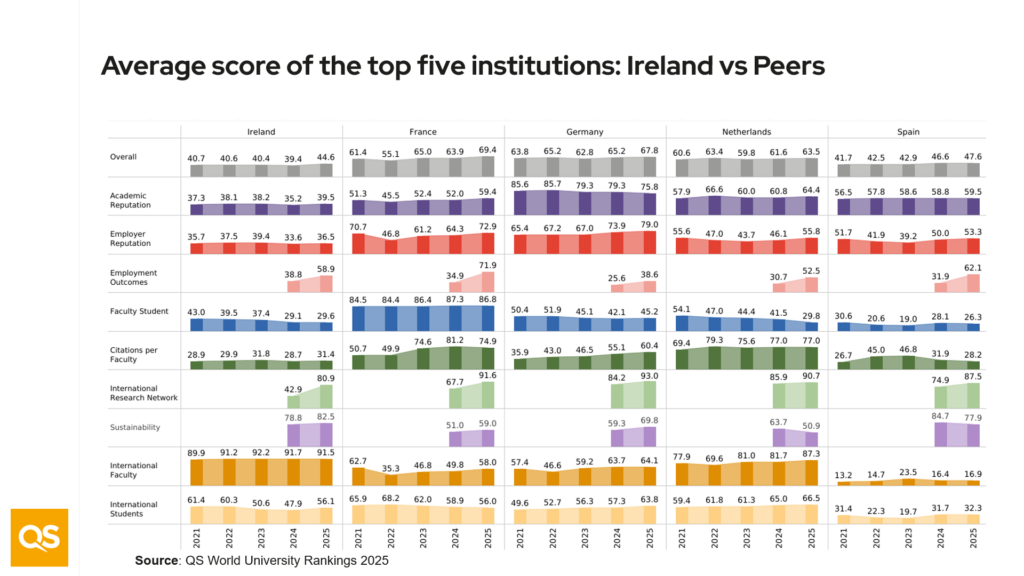
In the QS World University Ranking’s Employment Outcomes metric, Ireland’s top five institutions have shown a significant improvement. Their average score increased from 38.8 in 2024 to 58.9 in 2025.
However, despite this progression, Ireland’s score still lags behind the top institutions in other countries including France, Germany and the Netherlands. This suggests that while Ireland is making strides in enhancing employment outcomes for graduates, it still needs to catch up to other European countries to be truly competitive in this area.
Irish universities can take several measures to further enhance their employer outcomes and ease student concerns regarding the cost of living and job prospects. This includes highlighting some of Ireland’s impressive salary rates and offering detailed information about affordable accommodation, funding and student part-time work opportunities.



